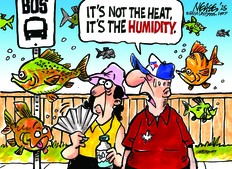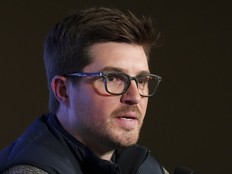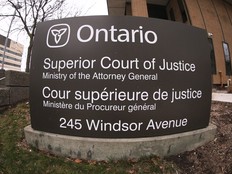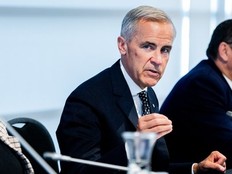Failed EV charging attempts drop in U.S.: J.D. Power
The study reveals only 14% of all EV owners say they've visited a charger without successfully charging their vehicle

Article content
A silver lining in the storm clouds that have been gathering around the all-electric-vehicle segment in North America can be found in the results of a recent J.D. Power study, which determined owners of EVs are facing fewer and fewer failed charging attempts in the United States. According to the 2025 U.S. Electric Vehicle Experience (EVX) Public Charging Study, released August 13, “non-charging visits at public EV chargers (meaning an owner visited a charger but was unable to charge their vehicle) have hit their lowest level in four years, a clear indicator that reliability and customer experience are steadily improving.”
The study reveals a notable improvement in charging reliability, with only 14% of all EV owners saying they visited a charger without successfully charging their vehicle—a significant decrease of five percentage points from 2024. However, the findings found lower overall satisfaction with the charging experience.
Drilling deeper into the numbers, satisfaction with DC (direct-current) fast-chargers came in at 654 (on a 1,000-point scale), a 10-point decrease from the same period a year ago, with notable declines in factors related to payment and cost. And satisfaction with public Level 2 charging declined to 607, a seven-point decrease year over year.

Not surprisingly, Tesla Destination and Tesla Superchargers — the acknowledged gold standard for public charging in North America — ranked highest in their respective segment. The company’s network continues to lead the DC fast-charger (DCFC) segment in customer satisfaction with a score of 709, despite a 22-point decline from last year.
Non-Tesla automaker-operated networks—including the Mercedes-Benz Charging Network, Rivian Adventure Network, and Ford Charge—collectively earn a satisfaction score of 709, on par with Tesla. However, these networks were not eligible for ranking consideration in this year’s study due to their limited footprint, “but early performance suggests manufacturers are successfully applying lessons from Tesla’s brand-level ecosystem. In comparison, third-party DCFC providers, which have the added challenge of targeting a broader audience, average a score of 591.”
EV Charging: Everything you need to know
The thorough study also found that first-time EV owners are more satisfied than longtime EV owners, with an overall satisfaction score of 610 among first-time EV owners using Level 2 chargers; and one of 592 among veteran EV owners. When it comes to DC fast-chargers, the satisfaction gap is smaller: 654 for newcomers and 648 for veterans. Study authors posit that a possible explanation for this trend is that veteran EV owners have higher expectations for technological advancements that aren’t quite being met by current vehicle and charger offerings.
Newbies or veterans do agree, however, that there are issues with pricing. Satisfaction with cost of charging among users of both Level 2 and DC fast-chargers dropped this year to 459 (-16 points) and 430 (-16 points) respectively. For users of DC fast-chargers, the cost of charging is the least satisfying aspect overall.

“Part of the decrease is due to non-Tesla owners using Tesla Superchargers, which deliver a far less satisfying user experience relative to the costs incurred, in comparison to those of Tesla owners,” said Brent Gruber, executive director of the EV practice at J.D. Power. “Additionally, in previous years, many DC fast-charging networks kept prices low as they developed their market presence, while manufacturers regularly offered free charging incentives with vehicle purchases. However, as the infrastructure market evolves and electricity rates rise, charging prices have increased significantly in some cases.”
Gruber notes that despite the cancellation of the U.S. federal National Electric Vehicle Infrastructure formula program (NEVI) in February, things are looking up for public charging in the States.
“In the absence of NEVI funding, the industry is experiencing a concerted effort among various stakeholders in the EV ecosystem—particularly from automakers and charging networks—to improve the public charging experience for customers,” he said. “With or without the federal funding, NEVI guidelines have made their mark by establishing a playbook for industry success. While overall satisfaction scores decline this year, our data shows clear improvement in the reliability and success of public charging—a promising sign of progress for the industry.”
Sign up for our newsletter Blind-Spot Monitor and follow our social channels on X, Tiktok and LinkedIn to stay up to date on the latest automotive news, reviews, car culture, and vehicle shopping advice.











Postmedia is committed to maintaining a lively but civil forum for discussion. Please keep comments relevant and respectful. Comments may take up to an hour to appear on the site. You will receive an email if there is a reply to your comment, an update to a thread you follow or if a user you follow comments. Visit our Community Guidelines for more information.